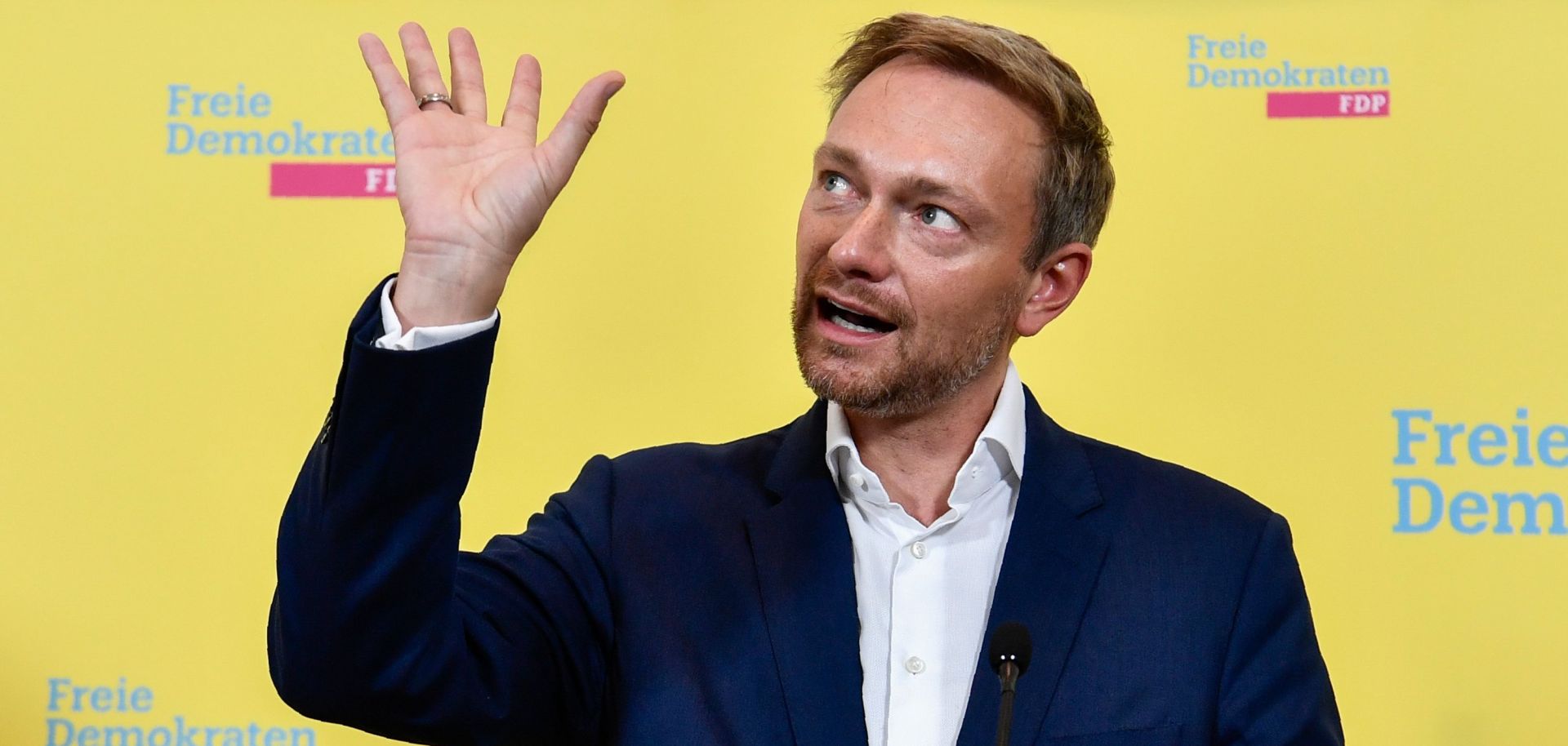ASSESSMENTS
Will the German Elections Bring Back the Old Kingmaker?
Sep 18, 2017 | 17:33 GMT

Since the electoral fiasco of 2013, the Free Democratic Party has tried to rebrand itself and to become more attractive in an increasingly competitive landscape. Part of the strategy was to appoint 38-year-old Christian Lindner as party leader and chancellor candidate.
(JOHN MACDOUGALL/AFP/Getty Images)
Highlights
- Because of ideological similarities, Germany's pro-business Free Democratic Party (FDP) could be a coalition partner for Chancellor Angela Merkel's conservatives.
- A government including the FDP would be skeptical of measures to share financial risk in the eurozone and to introduce additional protection for European Union companies, creating a potential source of friction with Southern Europe.
- While the FDP has traditionally been Germany's kingmaker, opinion polls suggest its influence to shape political events after the Sept. 24 election would be modest.
Subscribe Now
SubscribeAlready have an account?
